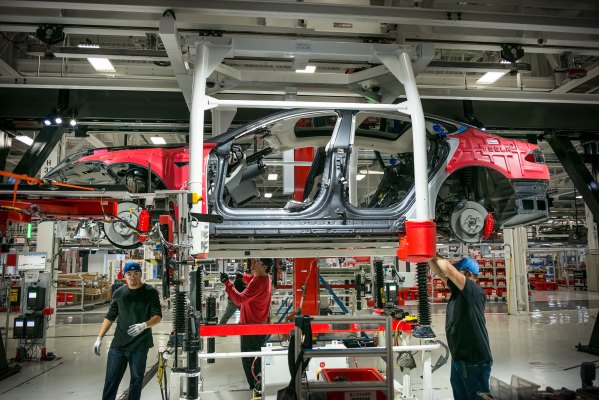The U.S. Equal Employment Opportunity Commission (EEOC) filed suit against Tesla on Thursday, accusing the automaker of violating federal law by tolerating widespread and ongoing racial harassment of its Black employees and subjecting some workers to retaliation for opposing harassment.
The lawsuit from the federal agency responsible for enforcing civil rights laws against workplace discrimination is one of several against Tesla for racial bias. The California Civil Rights Department sued Tesla in 2022 over similar allegations. And in April a jury ordered Tesla to pay a Black former worker, Owen Diaz, $3.2 million in damages after Tesla was found to have allowed severe racial harassment at its Fremont assembly plant.
In April 2022, Tesla revealed in a financial filing that the EEOC had an “open investigation” into the company. Tesla had engaged in a mandatory conciliation process with the agency. That process was not successful, which led to the lawsuit filed Thursday.
The EEOC alleges that since at least 2015 until present day, Black employees at that same factory have endured “severe or pervasive racial harassment” and “a hostile work environment.”
Specifically, the filing details the stereotyping and hostility, such as being called “lazy,” “smelly” and “always late.” They also claim to have endured slurs and epithets such as variations of the N-word, “monkey,” “boy,” and “black bitch.” The lawsuit alleges that these slurs were used casually and in high-traffic areas and worker hubs.
“I saw KKK epithets, a swastika, and the N-Word all over the bathroom,” one Black worker was quoted as saying in the lawsuit. “It was so gross and racist I don’t want to discuss it. It would say ‘kill black people,’ ‘kill N-Words,’ ‘hang black people,’ ‘hang N-Words.'”
The Black workers who spoke to EEOC said such graffiti, which also included images of nooses, could be found on a variety of surfaces, including on desks, in elevators, and on equipment, including vehicles rolling off production lines.
“Supervisors and managers witnessed racially offensive conduct but failed or refused to intercede,” reads the lawsuit. “Black employees reported the slurs, insults, graffiti and misconduct to Tesla’s human resources, employee relations, and managerial personnel . . . Tesla failed and refused to take steps to address the behavior.”
Furthermore, Tesla allegedly fired Black employees within weeks of them reporting or opposing racial harassment.
“After I voiced my unhappiness [about the harassment], I started getting written up for every little thing that was acceptable before like listening to music while working,” recounts one Black worker.
The lawsuit accuses Tesla of violating Title VII of the Civil Rights Act of 1964, amended in 1991, which calls on employers to correct unlawful practices based on race and to provide appropriate relief to aggrieved individuals.
“When you let a standard slip, you’ve set a new standard. Determining that prolific racial slurs do not merit serious discipline and failing to correct harassing conduct sends an entirely wrong message to employees,” said Nancy Sienko, the EEOC’s San Francisco district office director, in a statement. “It also violates an employer’s legal responsibility to act swiftly and effectively to stop race-based harassment.”
Tesla disbanded its press department in 2020 and could not be reached for comment.
The EEOC requests a jury trial and asks that the court order Tesla to pay damages to the aggrieved individuals, as well as fines for breaking the law. The agency also requests the court to grant a permanent injunction to Tesla management that engaged in and allowed racism to flourish and to order Tesla to institute and carry out policies to remedy the situation and protect Black workers in the future.
The lawsuit — EEOC v Tesla, Inc., Case No 4:23-cv-04984 — was filed in the U.S. District Court for the Northern District of California.
